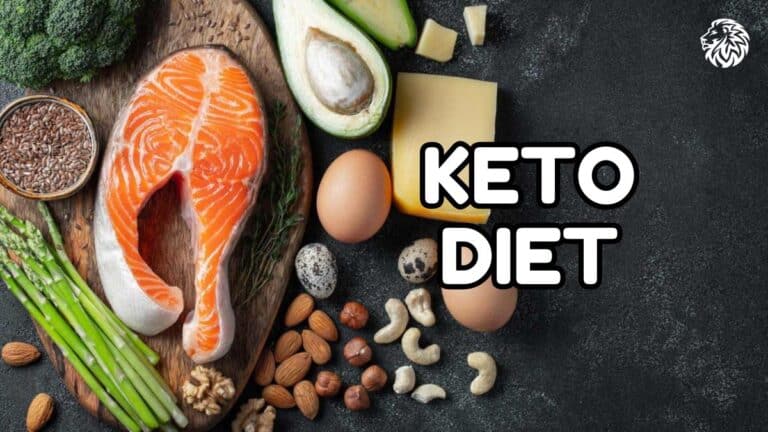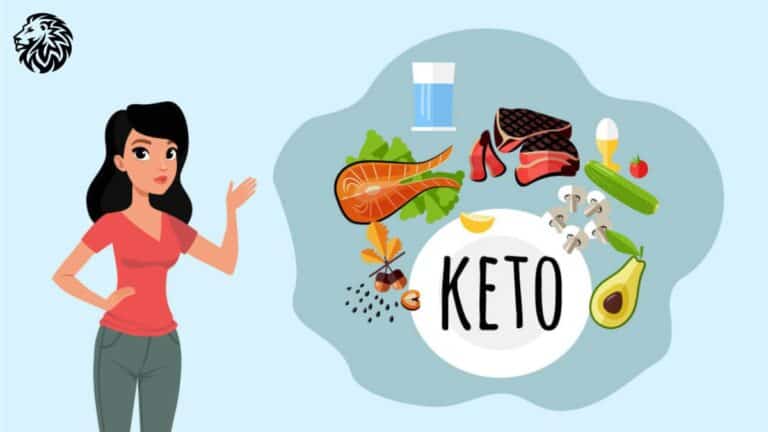The ketogenic diet, commonly known as “keto,” is a high-fat, low-carbohydrate diet that has gained widespread attention for its potential health benefits and effectiveness in weight loss. Originally developed in the early 20th century to treat epilepsy, the diet has evolved into a popular lifestyle choice for those seeking to lose weight, improve their metabolic health, or manage certain medical conditions.
Despite its popularity, the ketogenic diet is often shrouded in misconceptions and misunderstanding. Some view it as a quick-fix or fad diet, while others raise concerns about its long-term health effects and sustainability. In this article, we will delve into the scientific principles behind the ketogenic diet, explore its historical roots, discuss its various health benefits and challenges, and address common myths and facts. Our goal is to provide a comprehensive understanding of the ketogenic diet, enabling readers to make informed decisions about their health and dietary choices.
Historical Background of the Ketogenic Diet

The ketogenic diet’s journey from a medical therapy to a popular lifestyle choice is a fascinating tale of scientific discovery and cultural adaptation.
Early Medical Uses of Ketogenic Diet:
- Origins in Epilepsy Treatment: The ketogenic diet was first formulated in the 1920s as a treatment for epilepsy, particularly in children. Its development was inspired by the observation that fasting reduced seizure frequency and severity. The diet aimed to mimic the metabolic state of fasting while allowing food intake.
- The Diet’s Mechanism: By drastically reducing carbohydrate intake and replacing it with fats, the body shifts from using glucose as its primary energy source to burning fats, leading to the production of ketones. This metabolic state, known as ketosis, was found to reduce the occurrence of seizures.
- Decline and Resurgence: With the advent of effective anticonvulsant medications in the mid-20th century, the ketogenic diet’s popularity waned. However, it saw a resurgence in the 1990s, partly due to media attention from successful cases and further research validating its efficacy in epilepsy management.
Evolution into a Weight Loss and Lifestyle Diet:
- Adoption for Weight Loss: The diet gained traction in the weight loss community, buoyed by the low-carb diet trend and studies suggesting its effectiveness in rapid weight loss and improved metabolic health.
- Broadening Appeal: Beyond weight loss, the diet began to be recognized for potential benefits in managing other conditions like Type 2 diabetes, PCOS, and certain neurological disorders.
- Cultural Shift and Popularization: The ketogenic diet’s transformation into a lifestyle choice has been driven by its portrayal in media, endorsements by celebrities, and a growing body of anecdotal success stories. This shift has seen the diet move beyond medical therapy to become a part of the global health and wellness conversation.
This historical perspective sets the stage for understanding the ketogenic diet’s current status, as it straddles the realms of medical therapy and lifestyle choice, backed by both historical evidence and ongoing scientific research.
The Science of Ketosis

Understanding ketosis is key to comprehending how the ketogenic diet affects the body. This section delves into the metabolic state of ketosis, the process of entering this state, and the crucial distinctions between ketosis and the potentially dangerous condition of ketoacidosis.
Definition of Ketosis:
- A Metabolic State: Ketosis is a metabolic state in which the body, due to a significant reduction in carbohydrate intake, shifts to burning fat for energy instead of glucose (the body’s usual source of energy).
- Production of Ketones: This fat metabolism results in the production of ketone bodies – mainly beta-hydroxybutyrate, acetoacetate, and acetone – which the body uses as an alternative energy source, particularly for the brain.
How the Body Enters Ketosis:
- Reduced Carbohydrate Intake: When carbohydrate intake is drastically reduced (typically to less than 50 grams per day), the body’s supply of glucose decreases, which is a trigger for the body to look for an alternative energy source.
- Increased Fat Metabolism: The liver begins to convert fatty acids into ketone bodies, a process that becomes the body’s primary energy pathway. This metabolic shift is a survival mechanism that allows humans to endure periods of low food availability.
- Adaptation Period: The transition to ketosis can take several days to weeks, during which the body adjusts to using ketones for fuel.
Differences Between Ketosis and Ketoacidosis:
- Ketosis – A Controlled State: In dietary ketosis, the production of ketones is a controlled process, resulting in moderately elevated levels of ketones in the blood that are not harmful.
- Ketoacidosis – A Dangerous Condition: Diabetic ketoacidosis (DKA), on the other hand, is a serious and potentially life-threatening condition often associated with type 1 diabetes. It occurs when the body produces excessively high levels of ketones, leading to a dangerous drop in blood pH (acidosis).
- Key Differences: The primary differences lie in the level of ketone concentration and the underlying causes. While nutritional ketosis is generally safe and intentional, ketoacidosis is a medical emergency requiring immediate attention.
This clear distinction between ketosis and ketoacidosis is crucial, as it underscores the safety of the ketogenic diet when followed correctly and highlights the importance of understanding and recognizing the symptoms of ketoacidosis, especially in individuals with diabetes.
Macronutrient Breakdown

The ketogenic diet is defined by its unique macronutrient composition, which is crucial for achieving and maintaining ketosis. This section explores the roles of fats, proteins, and carbohydrates in a ketogenic diet, the ideal ratios of these macronutrients, and common food choices and alternatives that align with this dietary approach.
Role of Fats, Proteins, and Carbohydrates in Keto:
- Fats: The primary energy source on a keto diet, constituting about 70-80% of total daily calories. Fats are vital for entering and maintaining ketosis, as they are converted into ketones for energy.
- Proteins: Typically comprise 20-25% of daily caloric intake. It’s important to consume enough protein to maintain muscle mass, but not so much that it disrupts ketosis (as excess protein can be converted into glucose).
- Carbohydrates: Limited to about 5-10% of daily calories. Keeping carbohydrate intake low is essential for staying in ketosis. Most carbs on a keto diet come from non-starchy vegetables, nuts, and seeds.
Ideal Ratios for a Ketogenic Diet:
- General Guideline: The standard ketogenic diet typically involves consuming 70-80% of calories from fat, 20-25% from protein, and 5-10% from carbs.
- Personalization: These ratios can be adjusted based on individual needs and goals. For instance, someone who is more active may require more protein or carbs.
- Monitoring Ketosis: Adjusting these ratios may be necessary to ensure that one remains in ketosis, which can be monitored through methods like blood ketone meters or urine strips.
Common Food Choices and Alternatives:
- Fats: Sources include avocado, olive oil, coconut oil, butter, and high-fat dairy. Fatty cuts of meat and fatty fish like salmon are also staples.
- Proteins: Grass-fed meat, poultry, fish, eggs, and some dairy products like cheese and Greek yogurt.
- Carbohydrates: Primarily from vegetables like leafy greens, broccoli, cauliflower, as well as nuts and seeds. Fruits are generally limited to small portions of berries.
- Alternatives: For those accustomed to high-carb foods, keto alternatives include cauliflower rice, almond flour for baking, zucchini noodles, and keto-friendly sweeteners like stevia or erythritol.
Understanding and managing the macronutrient breakdown is a cornerstone of the ketogenic diet. It not only ensures successful entry and maintenance of ketosis but also helps in aligning the diet with individual health goals, preferences, and lifestyles.
Health Benefits of a Ketogenic Diet

The ketogenic diet is not just a tool for weight loss; it has been linked to a variety of health benefits, ranging from improved brain health to better cardiovascular markers. This section explores these benefits in detail.
Weight Loss:
- Mechanisms of Weight Loss on Keto:
- Enhanced Fat Burning: By reducing carbohydrate intake, the body is forced to burn fat for energy, leading to increased fat loss.
- Appetite Suppression: Ketosis often leads to a reduction in appetite, helping decrease overall calorie intake.
- Improved Insulin Sensitivity: Keto can improve insulin sensitivity, which can be effective in managing and preventing type 2 diabetes.
- Comparison with Other Diets:
- While studies show keto can lead to quicker weight loss compared to diets like low-fat, the long-term effects are similar to any other calorie-restricted diet.
Brain Health and Neurological Benefits:
- Impact on Epilepsy and Seizure Disorders:
- The ketogenic diet has a well-established role in reducing the frequency and severity of seizures, particularly in children with refractory epilepsy.
- Potential Effects on Alzheimer’s and Parkinson’s Disease:
- Preliminary research suggests that keto may improve symptoms of neurodegenerative disorders by providing alternative energy sources for the brain and reducing oxidative stress.
Cardiovascular Health:
- Effects on Cholesterol and Heart Disease Risk Factors:
- Some individuals experience improved lipid profiles, including higher HDL (good cholesterol) and lower LDL (bad cholesterol) levels.
- The diet may also reduce other heart disease risk factors like blood pressure and inflammation.
Other Potential Benefits:
- Diabetes Management:
- Keto has been found to improve glycemic control in individuals with type 2 diabetes, often leading to reduced reliance on medication.
- Impact on PCOS and Hormonal Balance:
- Women with Polycystic Ovary Syndrome (PCOS) may benefit from the ketogenic diet, as it can aid in weight loss, reduce insulin resistance, and improve hormonal balance.
These potential health benefits highlight the ketogenic diet as more than just a weight loss tool. However, it’s important to note that individual responses to the diet can vary, and long-term studies are needed to understand its effects fully. Additionally, individuals considering the ketogenic diet should consult healthcare professionals, especially those with pre-existing health conditions.
Challenges and Considerations

While the ketogenic diet can offer several health benefits, it also presents unique challenges and considerations that must be addressed to ensure it is followed safely and effectively.
Nutritional Deficiencies and How to Avoid Them:
- Risk of Deficiencies: Due to its restrictive nature, the keto diet can lead to deficiencies in essential nutrients like fiber, vitamins, and minerals typically found in fruits, whole grains, and some vegetables.
- Prevention Strategies: To avoid deficiencies, it’s crucial to incorporate a variety of nutrient-rich, keto-friendly foods, such as leafy greens, nuts, seeds, and avocados. Supplements for nutrients like magnesium, potassium, and vitamins B and C can also be beneficial.
Managing Side Effects like the “Keto Flu”:
- Symptoms of Keto Flu: As the body adjusts to ketosis, some individuals experience flu-like symptoms, including fatigue, headache, dizziness, irritability, nausea, and muscle cramps, typically within the first week.
- Mitigation Strategies: Staying hydrated, replenishing electrolytes (sodium, potassium, magnesium), and gradually reducing carb intake rather than an abrupt change can help alleviate these symptoms.
Long-term Sustainability:
- Concerns: The restrictive nature of the diet can make it challenging to adhere to in the long term, potentially leading to yo-yo dieting and weight regain.
- Approaches for Sustainability: Incorporating a more flexible approach, like a cyclical ketogenic diet or targeted ketogenic diet, can make long-term adherence more feasible for some individuals.
Special Populations and Contraindications:
- Not Suitable for Everyone: The ketogenic diet may not be appropriate for individuals with certain conditions, such as pancreatitis, liver failure, disorders of fat metabolism, certain mitochondrial disorders, or people who have had their gallbladder removed.
- Pregnant or Breastfeeding Women: Due to potential nutrient deficiencies, women who are pregnant or breastfeeding should consult healthcare providers before starting the diet.
- Children and Adolescents: While it can be beneficial for children with epilepsy, it should be undertaken with medical supervision, especially considering the nutritional needs for growth and development.
Given these challenges and considerations, it is essential for individuals considering the ketogenic diet to consult with healthcare professionals to ensure it is appropriate for their health status and to receive guidance on how to follow the diet safely and effectively.
Keto and Exercise

The relationship between the ketogenic diet and exercise is an area of growing interest, with implications for athletic performance and training strategies. Understanding how the body responds to different types of exercise while in ketosis is crucial for athletes and fitness enthusiasts who follow the diet.
Effects of Keto on Athletic Performance:
- Endurance Sports: Keto-adapted athletes may experience enhanced endurance performance due to a greater reliance on fat as a fuel source, which is more abundant than glycogen reserves.
- High-Intensity Sports: For sports requiring short bursts of high-intensity effort, the keto diet might initially lead to a decrease in performance. This is because such activities traditionally rely heavily on glycogen stores, which are limited on a ketogenic diet.
- Adaptation Period: Athletes may experience a temporary decline in performance during the initial adaptation phase to ketosis, but many report a return to or improvement in performance levels once fully adapted.
Adjustments for High-Intensity vs. Endurance Sports:
- Endurance Athletes:
- Emphasis on Fats: Endurance athletes on keto should ensure adequate fat intake for prolonged energy supply.
- Hydration and Electrolytes: Maintaining hydration and electrolyte balance is critical, as ketosis can alter fluid and mineral balance.
- High-Intensity Athletes:
- Targeted Ketogenic Diet: Incorporating a targeted ketogenic diet, where carbs are consumed around workouts, can provide the necessary glucose for high-intensity activities without disrupting overall ketosis.
- Strength Training: Strength and power athletes might need to modify their training regimen during the adaptation phase and monitor muscle mass and recovery.
For both groups, a well-formulated ketogenic diet that pays attention to micronutrient intake and hydration, combined with appropriate training adjustments, can be a viable nutritional strategy. However, individual responses to the ketogenic diet can vary, and athletes should monitor their performance and health markers closely and consider working with a dietitian or a coach experienced in ketogenic diets for athletes.
Keto Myths and Facts

The ketogenic diet, like many popular diets, is surrounded by myths and controversies. This section aims to clarify common misunderstandings and address some of the criticisms the diet faces.
Debunking Common Myths:
- Myth: Keto is a High-Protein Diet:
- Fact: The ketogenic diet is actually a high-fat, moderate-protein, and low-carb diet. Excessive protein can be converted into glucose, potentially hindering the state of ketosis.
- Myth: Keto Leads to Dangerous Muscle Loss:
- Fact: When followed correctly with adequate protein intake, the keto diet does not cause significant muscle loss. In fact, it can preserve muscle mass, especially when combined with strength training.
- Myth: Ketosis is the Same as Ketoacidosis:
- Fact: Nutritional ketosis is a safe and controlled metabolic state, whereas ketoacidosis is a dangerous condition mostly occurring in individuals with type 1 diabetes.
Addressing Controversies and Criticisms:
- Criticism: Keto is Unsustainable Long-Term:
- Response: While some find the diet restrictive and challenging to maintain, others achieve long-term success by adapting the diet to fit their lifestyle and preferences. The key is personalization and balance.
- Criticism: Lack of Long-Term Studies:
- Response: It’s true that long-term studies on the ketogenic diet are limited. Ongoing research is crucial to better understand the long-term impacts of the diet on various health markers.
- Criticism: Potential Nutrient Deficiencies:
- Response: The risk of nutrient deficiencies can be mitigated by carefully planning the diet to include a variety of nutrient-rich foods and considering supplementation where necessary.
It is important to approach the ketogenic diet with a balanced view, acknowledging both its potential benefits and limitations. As with any diet, individual responses can vary, and what works for one person may not work for another. Consulting with healthcare providers and possibly a dietitian can help ensure that the diet is followed safely and effectively.
Practical Tips for Starting a Ketogenic Diet

Embarking on a ketogenic diet can be a significant lifestyle change. These practical tips aim to simplify the transition and help maintain adherence to the diet in various settings.
Meal Planning and Preparation:
- Educate Yourself: Understand which foods are keto-friendly and which are not. Familiarize yourself with keto recipes and cooking methods.
- Plan Your Meals: Create a weekly meal plan. This helps in avoiding non-keto choices and eases grocery shopping.
- Prep in Advance: Prepare and store meals or meal components in advance to save time and ensure you always have keto-friendly options on hand.
Tracking Macros and Staying in Ketosis:
- Use a Macro Calculator: Utilize online tools to calculate your daily macronutrient needs based on your individual goals and activity level.
- Monitor Your Intake: Keep track of what you eat using food diaries or apps to ensure you’re staying within your macro ratios and carb limit.
- Listen to Your Body: Be attentive to signs that you’re in ketosis, like increased energy, reduced appetite, or testing using ketone strips.
Eating Out and Social Situations:
- Restaurant Choices: Opt for restaurants with keto-friendly options. Steakhouses, seafood places, and salad bars can be good choices.
- Communicate Your Needs: Don’t hesitate to ask for modifications to dishes (e.g., replacing high-carb sides with vegetables).
- Planning Ahead: If attending a social event, eat a keto-friendly meal beforehand or bring your own dish to ensure you have suitable options.
- Alcohol Consumption: If you choose to drink, opt for low-carb options like dry wine or spirits with zero-carb mixers.
Starting a ketogenic diet requires planning and commitment but incorporating these practical tips can make the process smoother and more enjoyable. Remember, the goal is to find a sustainable approach that works for your lifestyle and health goals.
The Future of Keto

The ketogenic diet, having cemented its place in both the health and wellness landscape and clinical practice, continues to evolve with ongoing research and emerging trends. This final section looks ahead to what the future may hold for this dietary approach.
Ongoing Research and Emerging Trends:
- Broader Medical Applications: Research is expanding into the use of keto for a variety of conditions beyond epilepsy, such as cancer, Alzheimer’s disease, and autoimmune disorders.
- Personalized Keto Diets: Emerging research focuses on tailoring the ketogenic diet to individual genetic, metabolic, and lifestyle factors for improved effectiveness and sustainability.
- Technological Integration: The development of apps and devices for real-time monitoring of ketosis and personalized dietary feedback is likely to enhance adherence and results.
- Keto in Sports Nutrition: There’s growing interest in the potential of keto diets for various types of athletes, looking at how different adaptations of the diet might benefit different forms of exercise.
The Ketogenic Diet in Mainstream Health Discourse:
- Increased Acceptance: Once viewed with skepticism, the keto diet is gaining acceptance among health professionals as a legitimate option for weight loss and health improvement.
- Public Perception and Media Influence: The portrayal of keto in media and popular culture continues to shape public perception, highlighting the need for accurate information and balanced reporting.
- Regulatory and Industry Response: The food industry’s response, with an increase in keto-friendly products, reflects the diet’s popularity and potential staying power. However, this also calls for regulatory measures to ensure product quality and accurate labeling.
- Continued Debate: The diet’s long-term effects and comparison with other dietary approaches remain topics of debate and study within the nutrition science community.
As the ketogenic diet continues to evolve and adapt to new research and societal trends, it will likely remain a significant player in the fields of dietetics, medicine, and personal health. However, the emphasis on evidence-based practice and individualized approaches will be crucial for its responsible integration into health and nutrition strategies.
Conclusion
This article has provided a comprehensive exploration of the ketogenic diet, shedding light on its mechanisms, benefits, challenges, and practical applications. As we conclude, let’s recap the key points and offer a final word of encouragement for those considering this dietary approach.
Recap of Key Points:
- Historical Background: The ketogenic diet originated as a medical treatment for epilepsy and has since evolved into a popular weight loss and lifestyle diet.
- Science of Ketosis: Understanding ketosis, the metabolic state induced by the diet, is crucial. It’s a process where the body shifts to using fats for energy, producing ketones.
- Macronutrient Breakdown: The diet’s success hinges on a high fat, moderate protein, and low carbohydrate intake, requiring careful planning and monitoring.
- Health Benefits: Potential benefits extend beyond weight loss to include improved brain health, cardiovascular health, diabetes management, and more.
- Challenges and Considerations: It’s important to be aware of potential nutritional deficiencies, the keto flu, and considerations for long-term sustainability and special populations.
- Exercise Considerations: The ketogenic diet can influence athletic performance, with specific considerations for endurance and high-intensity sports.
- Myths and Facts: The diet is surrounded by myths and controversies, necessitating a clear understanding and distinction between fact and fiction.
- Practical Tips: Successful adoption of the diet requires meal planning, macro tracking, and strategies for navigating social situations.
- Future Outlook: Ongoing research and emerging trends suggest a promising future for the ketogenic diet in various health and wellness sectors.
Encouragement for Informed Dietary Choices: Embarking on the ketogenic diet, like any significant dietary change, should be a well-informed and considered decision. It’s essential to approach it not as a temporary fix but as a potential long-term lifestyle change. Consulting with healthcare professionals, particularly for those with pre-existing health conditions, is crucial to ensure safety and effectiveness. Remember, the best diet is one that is not only effective but also sustainable and enjoyable for you as an individual. Whether you choose to pursue a ketogenic lifestyle or another dietary path, the most important factor is making informed, health-focused choices that align with your personal needs and goals.
References and Further Reading
- Sacks, F. (2017, July 27). Ketogenic diet: Is the ultimate low-carb diet good for you? Harvard Health Blog. Retrieved from https://www.health.harvard.edu/blog/ketogenic-diet-is-the-ultimate-low-carb-diet-good-for-you-2017072712089
- University of Kansas Medical Center. (n.d.). Keto diet research. Retrieved from https://www.kumc.edu/about/news/news-archive/keto-diet-research.html
- Freeman, J. M., Kossoff, E. H., & Hartman, A. L. (2007). The ketogenic diet: One decade later. Pediatrics, 119(3), 535-543. Retrieved from https://www.ncbi.nlm.nih.gov/books/NBK499830/
- Watson, S. (n.d.). Ketogenic Diet: Your Complete Meal Plan and Supplement Guide. Everyday Health. Retrieved from https://www.everydayhealth.com/diet-nutrition/ketogenic-diet/
- Grainger, D. (2019, February 1). The science behind ketogenic diets, or why we get fat and what to do about it. Forbes. Retrieved from https://www.forbes.com/sites/davidgrainger/2019/02/01/the-science-behind-ketogenic-diets-or-why-we-get-fat-and-what-to-do-about-it/?sh=48c89b1f3420







